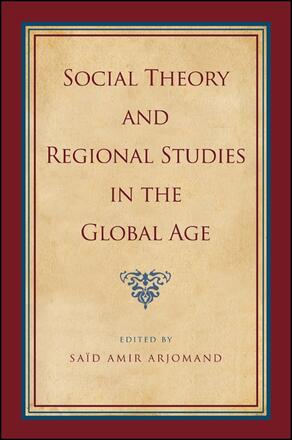
Social Theory and Regional Studies in the Global Age
Alternative formats available from:
A pioneering approach to social theory that rectifies overreliance on Western historical experience of development and modernization.
Description
In this pioneering volume, leading international scholars argue for the development of a new approach to social theory that draws on regional studies for the conduct of comparative analysis in the global age. Social Theory and Regional Studies in the Global Age moves beyond facile generalizations based on the historical experience of modernization in the West by highlighting differences rather than similarities and contrasts rather than commonalities, and by examining civilizational processes and culturally specific developmental patterns distinctive of different world regions. Essays combine comparative and historical sociology with civilizational analysis and the study of multiple and alternative modernities. Different patterns of modernization are compared within the framework of global/local compressed communication and interaction that results from globalization. The introductory chapter puts the present effort in the context of the seminal work of three generations of comparative sociologists, and what follows is a penetrating analysis of modernization and globality, opening the way for rectifying the erasure of the historical experience of a very sizeable portion of humankind from the foundation of social theory.
Saïd Amir Arjomand is Distinguished Service Professor of Sociology and Director of the Stony Brook Institute for Global Studies at Stony Brook University, State University of New York. He is the author and editor of many books, including (with Nathan J. Brown) The Rule of Law, Islam, and Constitutional Politics in Egypt and Iran, also published by SUNY Press.
Reviews
"This book is a long-needed bridge between the increased transnational, regionalized, and interconnected world. It offers a sound foundation on which future scholars, particularly those with interests in comparative analysis, will be able to draw. " — H-Net Reviews (H-USA)
"…the book contains all sorts of information and argument that make it worth reading … [it] represents an advance in sociology, from the concentration on industrial societies to a full and proper concern with the historical record. " — European Journal of Sociology